Lung Scan
Lung Strong, Live Long
CT Scan for Thoracic Cancer
CT lung cancer screening utilizes computerized tomography algorithms to detect and diagnose lung diseases. Just like the heart, the lungs are also fascinating organs in the human body. Thoracic and lung cancers are complex malignancies that are only detected once they reach the final stages. A CT scan for Thoracic cancer has revolutionized the concept of detection and diagnosis. Advanced algorithms and lung imaging allow radiologists to analyze and detect any abnormal growth at the initial stages of the disease.
Buckle up and embark on the journey with us to explore the significance of a lung scan. Discover the role of CT scans in the detection and diagnosis of lung diseases.
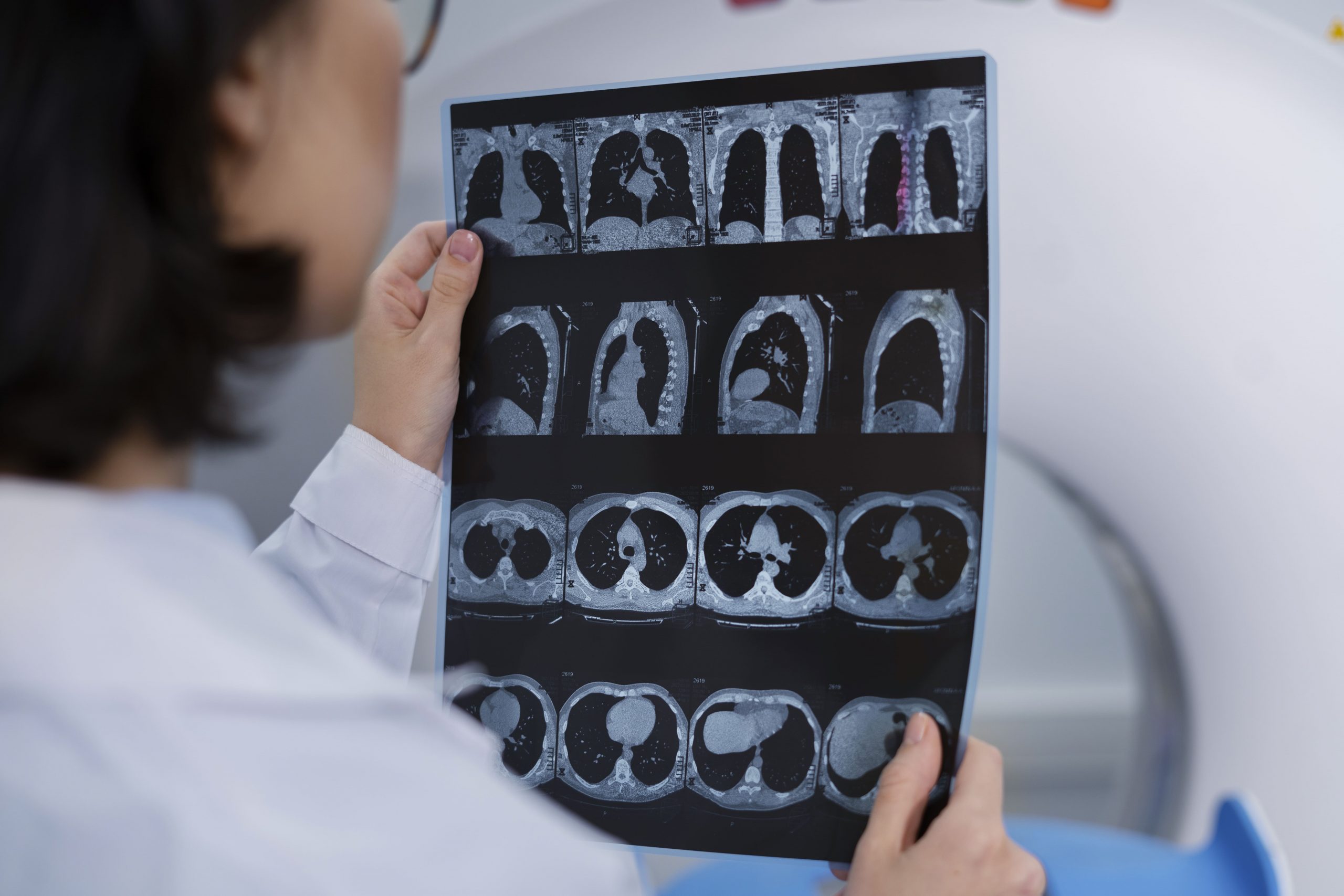
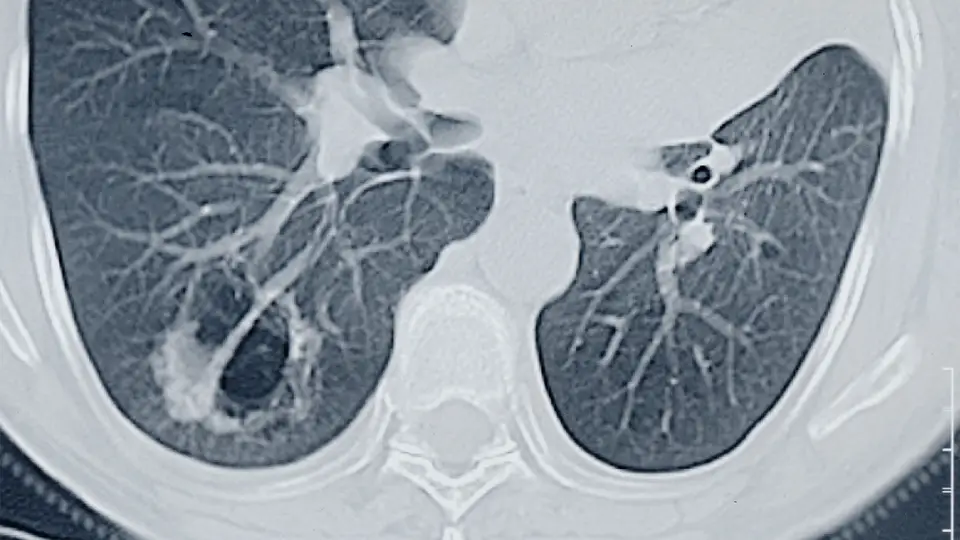
What is CT lung cancer screening?
Recent technologies of computerized tomography are employed to generate images that empower radiologists to analyze and diagnose any abnormality. A lung scan aids in early detection of abnormalities before disease onset. Non-invasive and convenient, find lung cancer screening near me for proactive care.
How is a lung scan performed?
1. First of all, it is advised not to smoke before the lung scan test.
2. You can eat, drink, or take medications as usual.
3. Try to wear loose clothing.
4. The patient is advised to lie on the scanner-connected table.
5. A CT scanner will take multiple cross-sectional images of your thoracic region.
6. Radiologists will analyze and examine the lung images, identifying the size or shape of any abnormal mass.
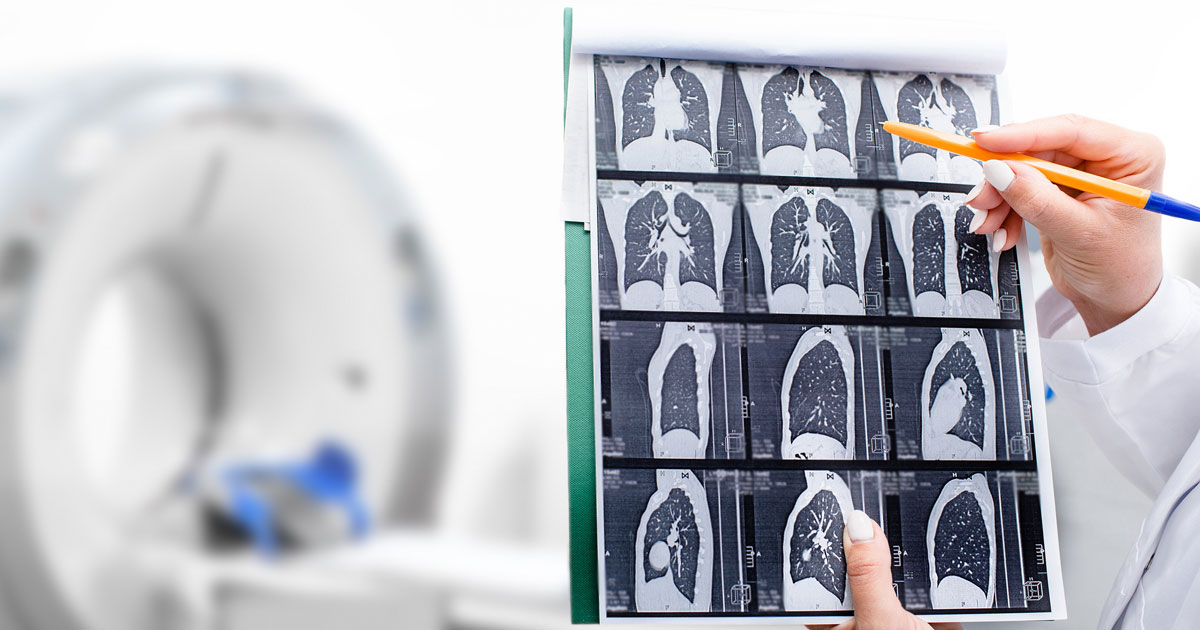
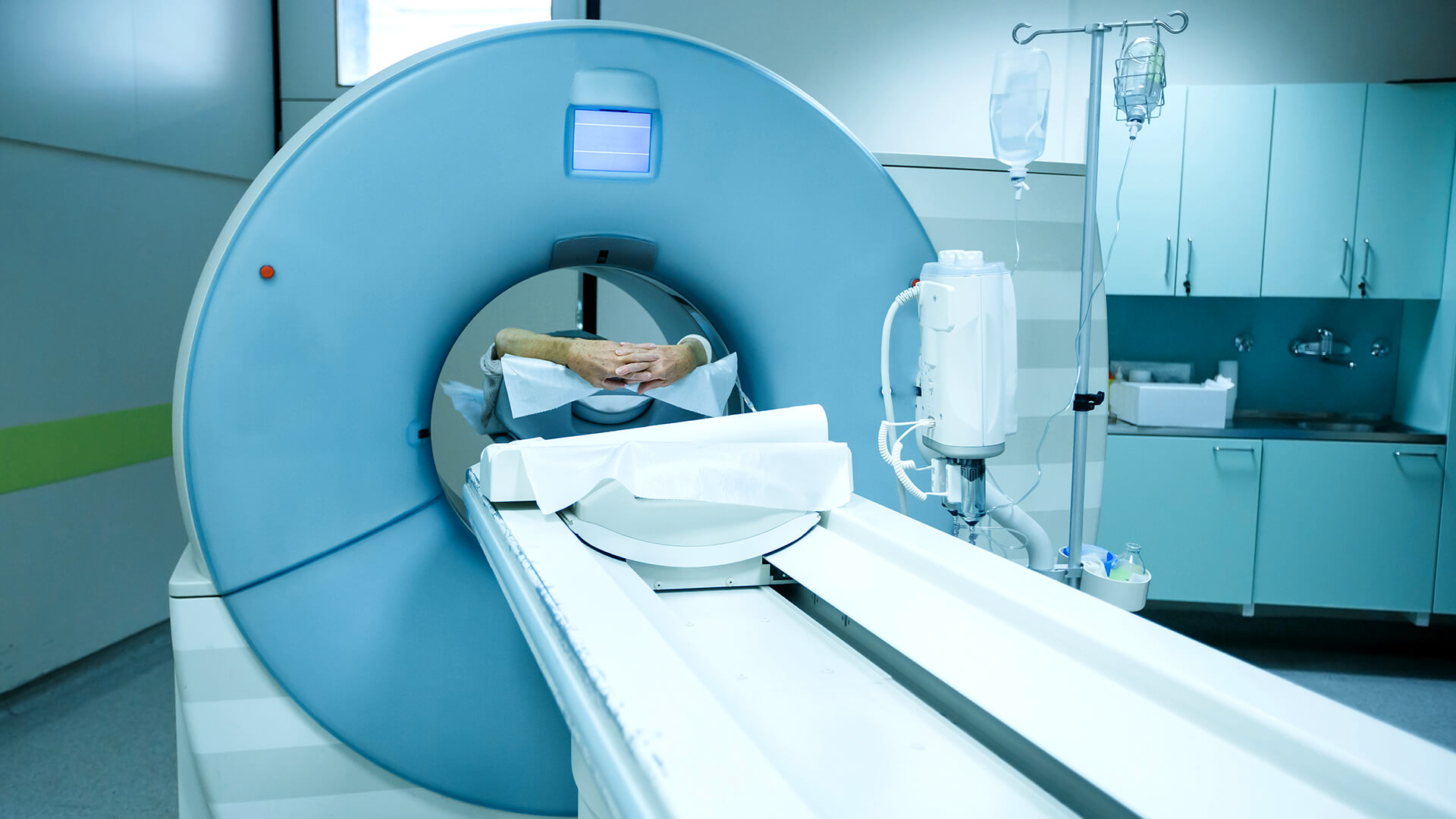
What is a nuclear lung scan?
A nuclear lung scan from ViaScan provides insightful information about your thoracic and lung health. A lung scan with tomography algorithms is more sensitive than regular chest X-rays. Early detection and accurate results aid in managing effective cancer treatments.
How much does a lung ct scan cost?
Depending on the type of lung scan and modern diagnostic tools, the lung scan cost varies. ViaScan offers a reliable and accurate lung scan with advanced diagnostic techniques.
For detailed information about the scan and its cost, just visit our website, 123bodyscan. From offering advanced CT scan services to providing accurate and reliable results, ViaScan has done wonders.
ViaScan patients can get the CD of their scan.
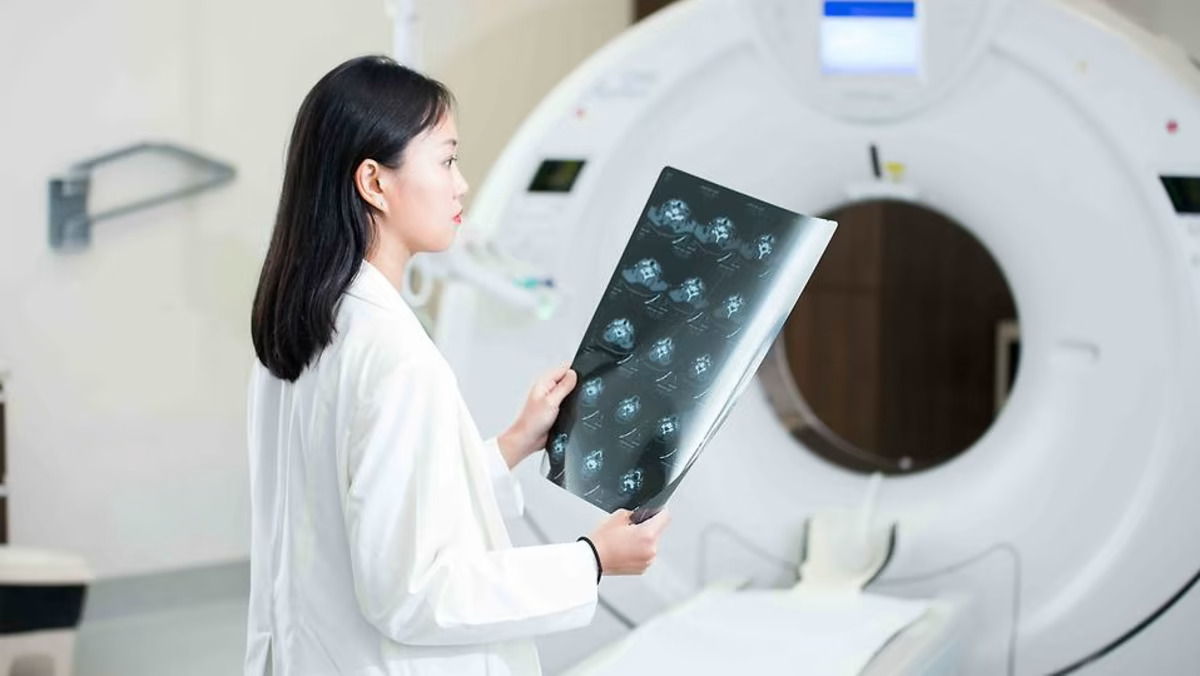
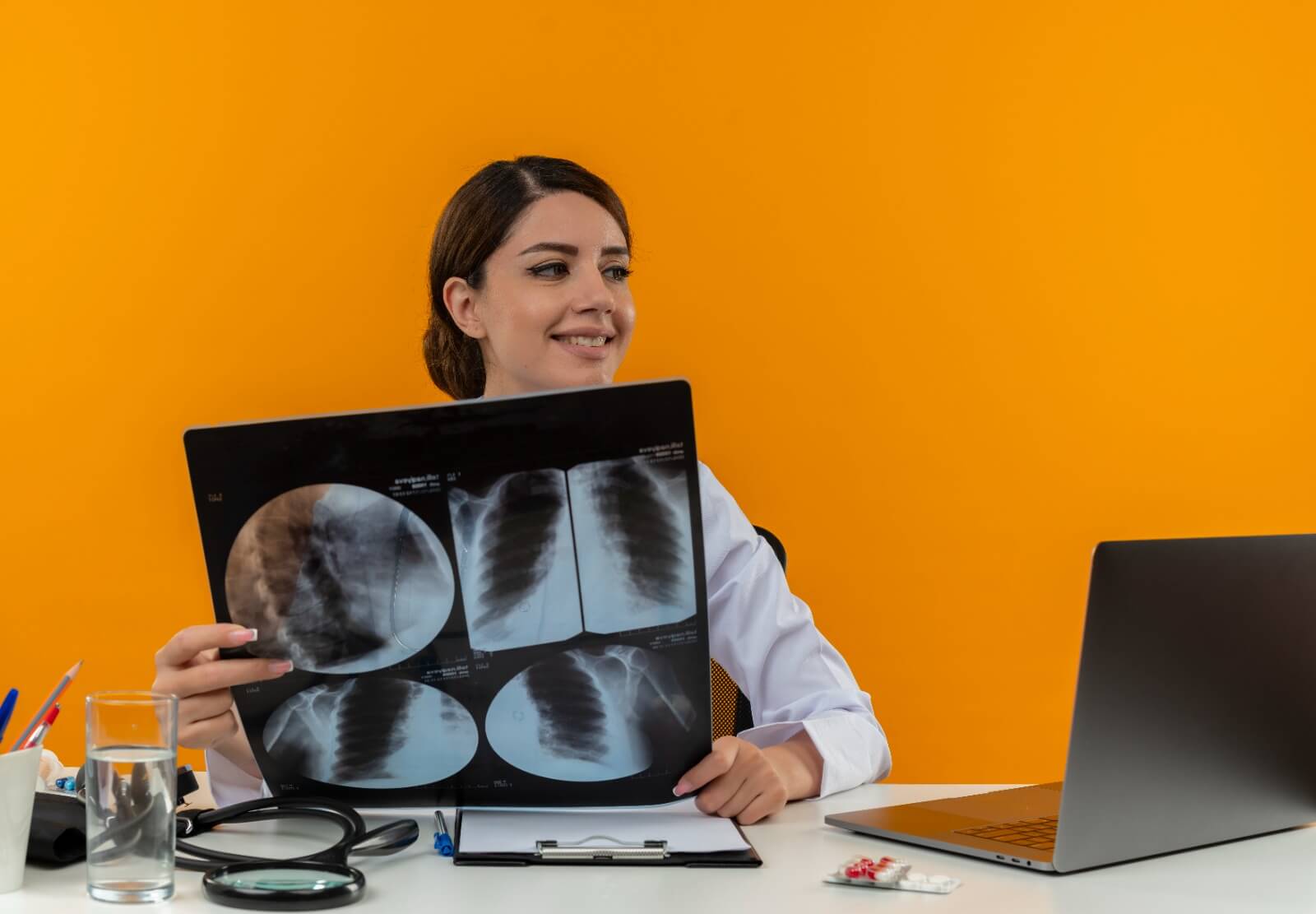
Benefits of Nuclear Imaging Lung Scan
1. Accurate and precise results.
2. Early detection.
3. Non-invasive and painless.
4. Less risk of complications.
5. Informed results assist in choosing treatment plans
Detects and diagnoses any abnormality with a lung scan utilizing modern computerized tomography algorithms. A lung cancer screen is a powerful tool that gives a clear insight into our thoracic and lung health. A lung scan from ViaScan assists in early detection, which ultimately aids in choosing the medical treatment before it’s too late. Evaluate your lung health with ViaScan and maintain a healthy life.
FAQs
- What is a lung scan?
- How much does a lung scan cost?
- How many types of lung scans?
- How long does a lung scan take?
- What type of imaging technology is involved in a lung scan?
- What is a low-dose CT scan?
Lung scanning is a diagnostic technique to detect and diagnose lung cancer or lung diseases in their early stages. The thoracic region is scanned and analyzed, focusing on the lungs, to detect tumors or abnormal tissue growth.
Depending on the type of lung scan and diagnostic tool, the cost of a lung scan varies.
Different types of lung scans are employed to diagnose and detect lung abnormalities. This includes regular chest X-rays, CT scans, nuclear imaging lung scans, and lung ultrasonography.
From preparation to scanning, a lung scan will only take 20 minutes. After scanning, you can consult with a certified radiologist to discuss your results.
Different types of imaging technology can be employed for a lung scan. These include electron beam tomography imaging, computerized tomography (CT) and nuclear medicine imaging.
A low-dose CT scan uses a minimal amount of radiation as X-rays pass across the patient. In lung screening, reduced radiation exposure generates high-resolution images of the targeted area.

